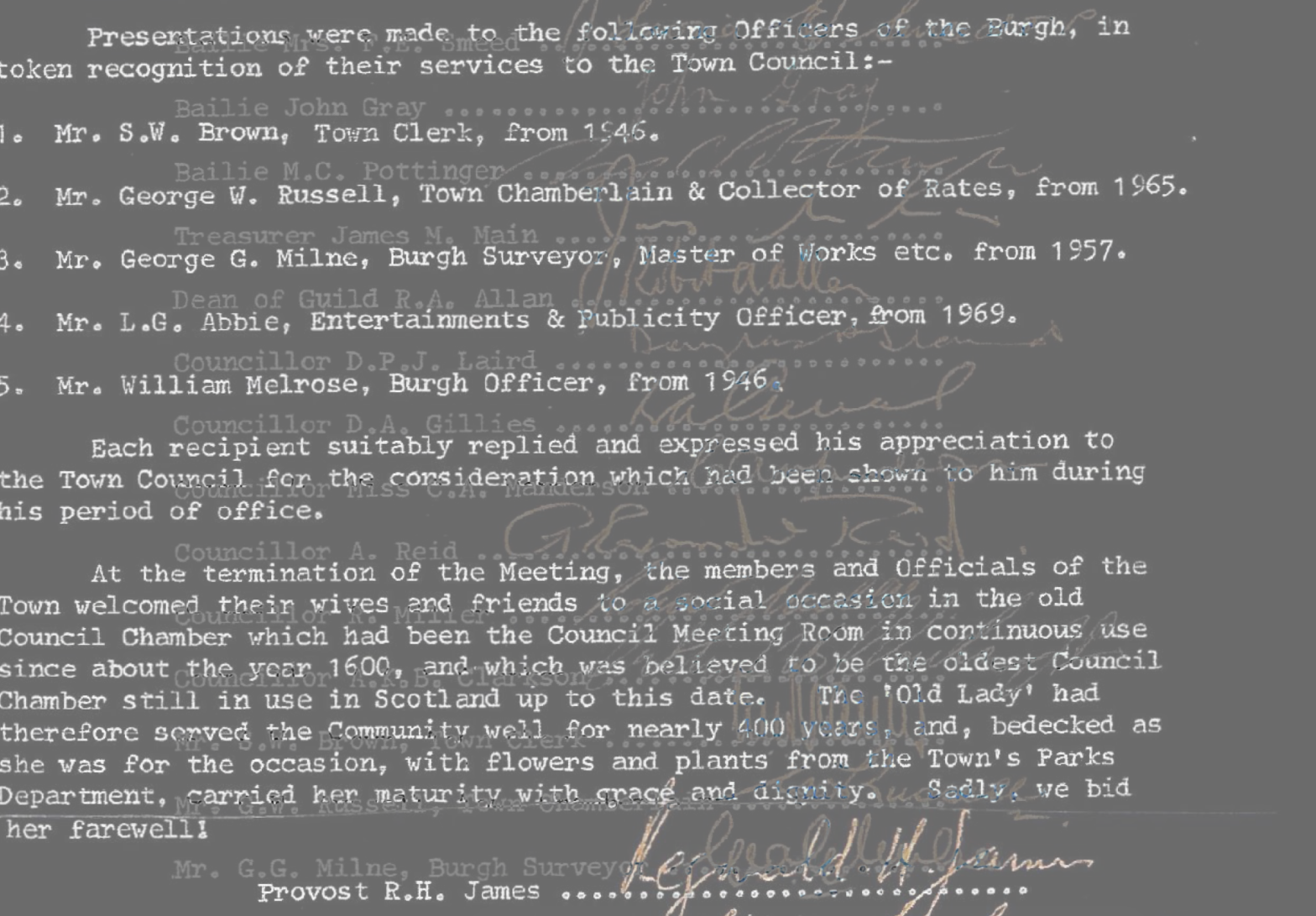Vale atque vale
…
ROYAL BURGH OF DUNBAR MINUTE OF THE LAST MEETING of the PROVOST, MAGISTRATES & COUNCILLORS
held within the Council Chambers, Town House, Dunbar On THURSDAY, 15th May, 1575 at 8.30 pm.
SEDERUNT
The Meeting was attended by those members and officials whose names and signatures are appended hereto.
CHAIRMAN
PROVOST R.H. JAMES
MINUTES
The Minutes of Meeting of the Town Council held on 7th May, 1975: prints of which had been circulated were held as read, approved of and signed by the Chairman.
Local Government (Scotland) Act 1973
Section 1(5) of the Local Government (Scotland) Act, 1 973 states “on 16th May, 1975, all Local Government areas existing immediately before that date, that is to say all Counties, Counties of Cities, Large Burghs, Small Burghs and Districts shall cease to exist and the Council of every such area shall also cease to exist”.
Section 2 of the Act provides for the Constitution of Councils of Regions, Island,Areas and Districts to take the place of the existing Local Authorities and accordingly in the light of these statutory provisions, the Town Council. of Dunbar along with all other Councils in Scotland go out of existence on this date.
Dunbar was a baronial Burgh before 1230 under Patrick, Earl of Dunbar and became a Royal Burgh in terms of a Charter of 16th August, 1445 confirmed in later Charters of 1555 and 1603, and further confirmed in the principal Charter granted by King James V1 in the year 1618. Other minor Charters in favour of the Burgh are also recorded including one from Mary Queen of Scots in 1562.
Dunbar’s elevation to the status of a Royal Burgh was unique in Scotland as it arose out of the forfeiture of the lands of the Earls of Dunbar to the Crown in 1445 and is the only instance of a Burgh becoming Royal in this way. It would seem that at least since 1230, Dunbar has had its own Town Council to administer the Town. So far as known, the first mention of a Provost of the Burgh is contained in the Charter of 1618, but it is more than likely that the term “Provost”, as Chairman of the Council was in use many years before that time.
Accordingly the passing of the Local Government (Scotland) Act, 1973 brings to an end a system of administration which has survived in Dunbar for at least 745 years according to known records.
…
